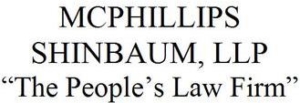What Are My Options After a Wrongful Termination?
If you’ve recently been laid off or fired from your job and believe you have been wrongly subjected to this action, you might wonder whether or not you have the right to sue your employer for wrongful termination. While you may feel you have a case for wrongful termination, unfortunately many cases do not qualify as wrongful termination.
Alabama, like many other U.S. states, is an at-will employment state. This means that either you or your employer can end the employment relationship at any time and for any reason. You can quit whenever you want and your employer can fire you for most any reason.
But, even in at-will employment states like Alabama, there are certain exceptions to this rule. There are several instances in which your employer is not permitted to just terminate your employment. If you are fired for one of these reasons, you may have a wrongful termination case, so contact an experienced Alabama Employment Attorney right away to discuss your case.
What is Wrongful Termination in Alabama?
Also known as wrongful dismissal, wrongful termination refers to an employer firing someone when they don’t have the legal right to do so. In Alabama, your job termination may not be lawful if you:
- Were terminated due to discrimination
- Were fired for retaliatory reasons
- Were fired in violation of an employment contract
- Were terminated because you were a union member
- Were fired for taking lawful time off of work after giving proper notice
Your Options After a Wrongful Termination
If you believe that you were wrongfully let go from your job, some of the ways that you can pursue justice include:
- Severance agreement. You can try to negotiate a severance package with your employer on your own. In most cases, an employer that fires you unlawfully isn’t going to be ready to also hand you a deal without a fight. You might receive a lowball offer, but it is likely much less than your case is worth.
- Internal grievance. An internal grievance works best when you believe that you are about to be terminated. Once you start this internal process, it becomes more difficult for your employer to fire you because it will show clear retaliation. If you’ve already been fired, you may be able to get your employer to agree to a post-employment grievance through arbitration, if the company has such a procedure available.
- Union grievance. If you are a member of a union, file a grievance through that organization. Your union contract will outline the rules for a grievance as well as rules for firing a union member.
- Discrimination claim. If you believe that you were unfairly terminated due to discrimination based on race, ethnicity, religion, sex, pregnancy, or age (if age 40 or older), you can file a complaint with the U.S. Equal Employment Opportunity Commission (EEOC). However, there are time frames you must adhere to or forever lose you right to file a claim. Call McPhillips Shinbaum immediately after your termination to discuss your rights and the statute of limitations. In fact, this is a requirement in Alabama workplace discrimination cases before you can file a wrongful termination lawsuit.
- Wrongful termination lawsuit. Most employees who are wrongfully terminated choose to sue their former employer because it provides the best opportunity to produce results. Provided you have sufficient documentation to prove your case, including copies of performance reviews, salary information, and correspondence, a wrongful termination suit can help you collect the compensation you deserve from an employer who stepped across the line if you do so within the appropriate time frame.
Speak With An Alabama Wrongful Termination Lawyer Today
If you believe that your termination falls under one of the listed exceptions, you may pursue any of the listed options, including filing a wrongful termination suit against your employer. Few of these cases reach a courtroom, and a majority are settled if the employee can show evidence that they were fired for a reason that was impermissible.
A successful wrongful termination suit can accomplish several things. You may be able to recover your job, lost wages, compensatory damages, and other expenses associated with losing your job. If you feel that your termination was not lawful, an experienced Alabama wrongful termination attorney can review your case and advise you of your options. Contact the experienced wrongful terminations attorneys at McPhillips Shinbaum to make sure your rights are protected and that you file your claim within the statute of limitations.
At McPhillips Shinbaum, LLP, our qualified Alabama employment law attorneys have been fighting for the rights of Alabama’s workers for over three decades. Contact our Montgomery office now at 334.262.1911 or reach us online to schedule a confidential case evaluation.
#locallegallifeline










